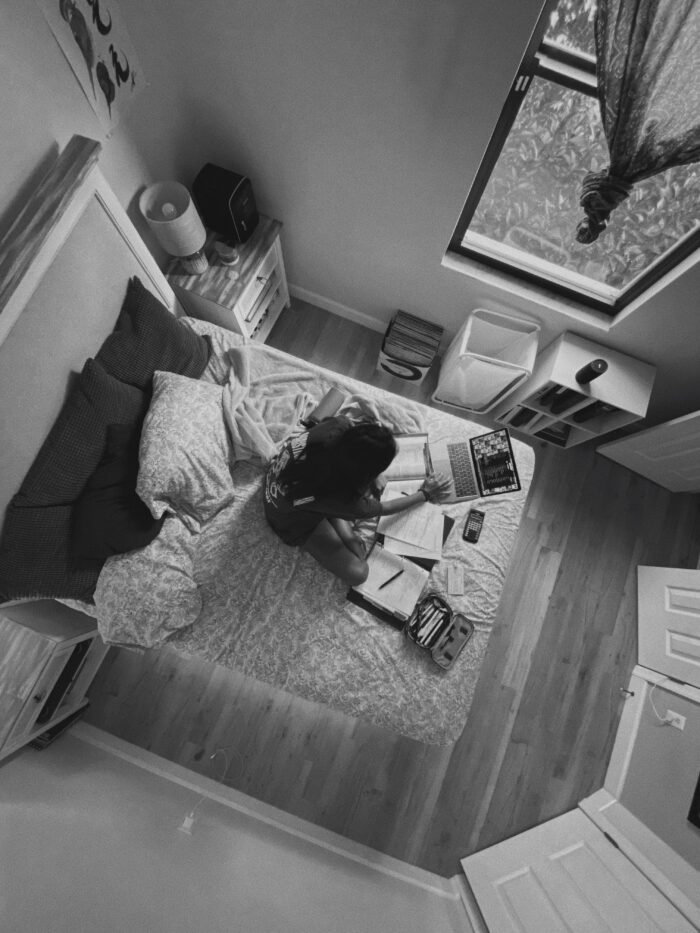
Keep Calm and Don’t press send!
This blog is part of a series for Be A Better Human and Respect Now Always at UNE.
“Bullying is a pattern of repeated physical, verbal, psychological or social aggression that is directed towards a person by someone more powerful than them and is intended to cause harm, distress and/or fear.” Respect. Now. Always.
Cyberbullying can take many forms, including:
- posting hurtful comments and embarrassing photos on social media
- sending abusive messages or images through mobile phones and on the internet
- sending emails that vilify, demean or cause humiliation to a person or group
- setting up hate websites and blogs to vilify someone
- using chat rooms, instant messaging, and gaming areas to harass someone.
Bullying has always existed, but why should we address online bullying? Well, for starters… we spend a lot of time on social media. In 2019, the average daily usage of social media of internet users globally was 144 minutes/day. 🤯 💻
And, since we have been spending more time at home since the lockdown restrictions by the Australian Government – we can almost guarantee that daily social media average has probably risen, and possibly the occurrence of cyberbullying.
Statistics reveal that nearly half of young people receive some form of cyberbullying online, to be clear, that’s 47% of young people! Yikes! What was also interesting was to discover that 14% of young adults have admitted to cyberbullying another person.
So, there really is no better time than to discuss what online bullying is… and if you might be participating in it without even knowing.

If you see something on social media that you don’t particularly agree with and would like to respond, consider these questions first:
- would you say that to someone’s face?
- Are you using all caps (a.k.a online yelling)?
- How would you feel if someone sent that to you?
Maybe instead try;
- blocking or unfollowing a post that upsets you
- turning your phone off and distracting yourself
Not only can online bullying hurt the victim of an ill message, but also the person behind the keyboard who sent it. Cyberbullying is not only illegal, but it can have some massive ramifications to the perpetrator in the future.
Just incase you didn’t know, it’s not that easy to delete something once it’s been posted. Anything you share online can be considered as a “permanent public record” of who you are, or moreover an online reputation. Your online reputation can be viewed by anyone, particularly employers, colleges, clubs, and others who may be researching you in the future.
So, let’s go back to that point we made about cyberbullying being illegal…
In the most serious of cases, cyberbullying is a crime. There is a national law that makes it a crime to use a phone or the internet in a way that is offensive and/or cause serious effect on the person targeted.
Sending messages, emails or posts which threaten to harm or kill someone, destroying or damaging property, or if it involves encouraging violence against someone is a crime in NSW.
If you are worried that you have cyber-bullied someone it is recommended that you seek legal advice straight away. Youth Law Australia have the information and contact details with where you can go if you need this.
UNE has a zero-tolerance policy towards bullying of any kind. The code of conduct gives an overview of what policies students should comply with when interacting on university platforms and the penalties for misconduct.
At UNE, we have various support systems for you. If you feel like you have been the target of online harassment and you need to speak with someone, our experienced team at Advocacy and Welfare have confidential support for students in need and can point you in the right direction of whom you should be talking with for the correct support.
Feel free to come in for a cup of tea or you can contact us here.
Student Success also has confidential counselling for students, you can find them here.
Lifeline is also a 24/7 hotline and you can call them on 13 11 14


